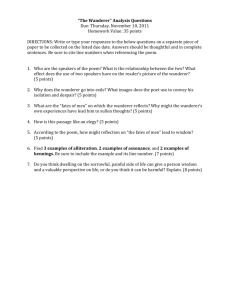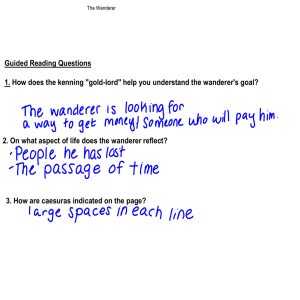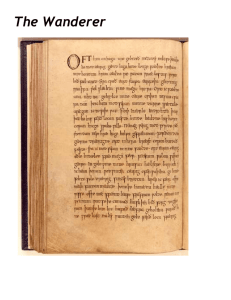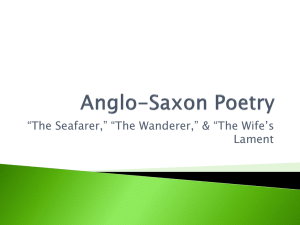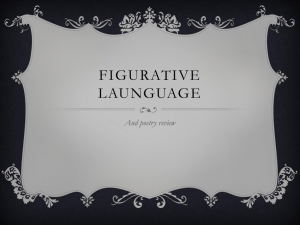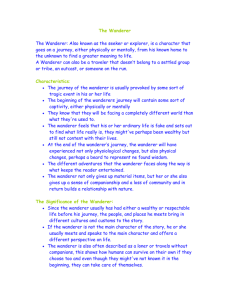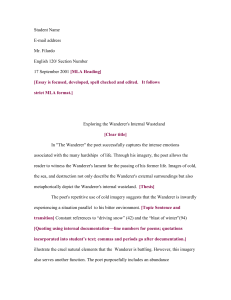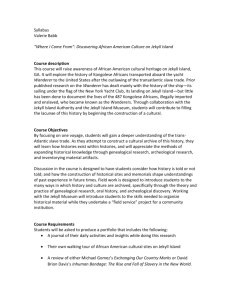KEY “The Wanderer” – During Reading 2 Column Notes Questions
advertisement
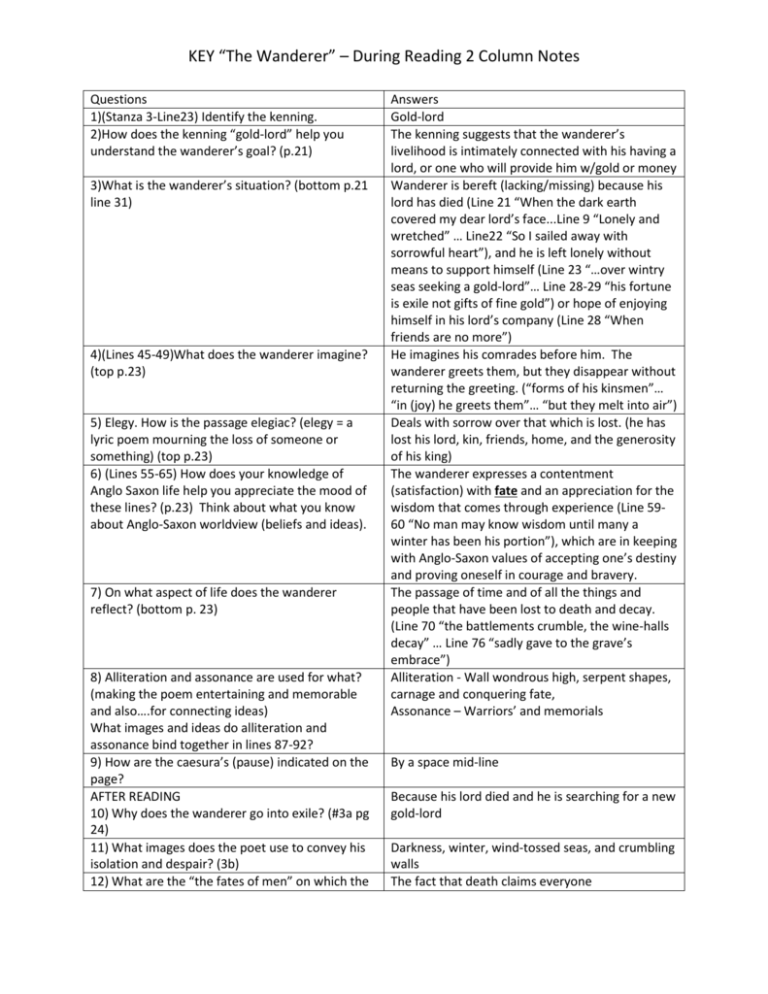
KEY “The Wanderer” – During Reading 2 Column Notes Questions 1)(Stanza 3-Line23) Identify the kenning. 2)How does the kenning “gold-lord” help you understand the wanderer’s goal? (p.21) 3)What is the wanderer’s situation? (bottom p.21 line 31) 4)(Lines 45-49)What does the wanderer imagine? (top p.23) 5) Elegy. How is the passage elegiac? (elegy = a lyric poem mourning the loss of someone or something) (top p.23) 6) (Lines 55-65) How does your knowledge of Anglo Saxon life help you appreciate the mood of these lines? (p.23) Think about what you know about Anglo-Saxon worldview (beliefs and ideas). 7) On what aspect of life does the wanderer reflect? (bottom p. 23) 8) Alliteration and assonance are used for what? (making the poem entertaining and memorable and also….for connecting ideas) What images and ideas do alliteration and assonance bind together in lines 87-92? 9) How are the caesura’s (pause) indicated on the page? AFTER READING 10) Why does the wanderer go into exile? (#3a pg 24) 11) What images does the poet use to convey his isolation and despair? (3b) 12) What are the “the fates of men” on which the Answers Gold-lord The kenning suggests that the wanderer’s livelihood is intimately connected with his having a lord, or one who will provide him w/gold or money Wanderer is bereft (lacking/missing) because his lord has died (Line 21 “When the dark earth covered my dear lord’s face...Line 9 “Lonely and wretched” … Line22 “So I sailed away with sorrowful heart”), and he is left lonely without means to support himself (Line 23 “…over wintry seas seeking a gold-lord”… Line 28-29 “his fortune is exile not gifts of fine gold”) or hope of enjoying himself in his lord’s company (Line 28 “When friends are no more”) He imagines his comrades before him. The wanderer greets them, but they disappear without returning the greeting. (“forms of his kinsmen”… “in (joy) he greets them”… “but they melt into air”) Deals with sorrow over that which is lost. (he has lost his lord, kin, friends, home, and the generosity of his king) The wanderer expresses a contentment (satisfaction) with fate and an appreciation for the wisdom that comes through experience (Line 5960 “No man may know wisdom until many a winter has been his portion”), which are in keeping with Anglo-Saxon values of accepting one’s destiny and proving oneself in courage and bravery. The passage of time and of all the things and people that have been lost to death and decay. (Line 70 “the battlements crumble, the wine-halls decay” … Line 76 “sadly gave to the grave’s embrace”) Alliteration - Wall wondrous high, serpent shapes, carnage and conquering fate, Assonance – Warriors’ and memorials By a space mid-line Because his lord died and he is searching for a new gold-lord Darkness, winter, wind-tossed seas, and crumbling walls The fact that death claims everyone KEY “The Wanderer” – During Reading 2 Column Notes wanderer reflects? (4a) 13) Why might the wanderer’s own experiences have led him to such brooding thoughts? (4b) His grief at the death of his lord causes him to ponder the deaths of all men.
